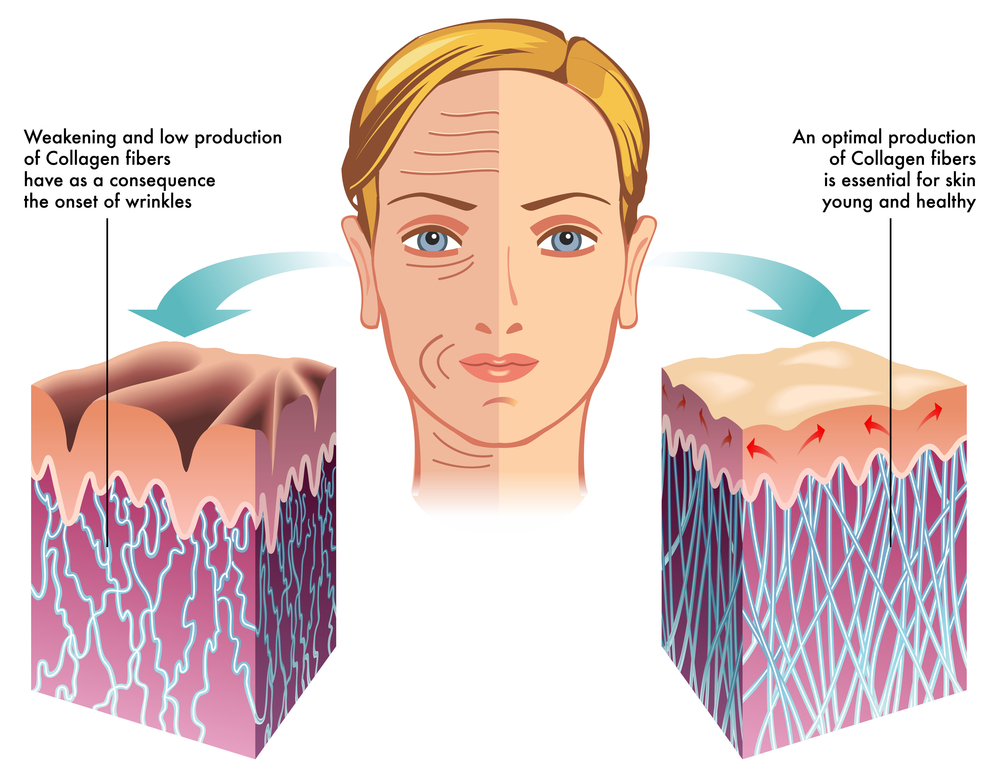Spirulina, which is blue-green algae that is usually found in powdered form, is now available in supermarkets, after only being available in health food stores. People have been eating algae for hundreds of years in different cultures, but it is only now becoming a popular health food in the United States. Here’s what you need to know about spirulina, its health benefits, and how you can incorporate it into your diet.
History of Spirulina
Spirulina, also known as Arthrospira, is a type of algae that has been used for centuries by cultures around the world. The Aztecs reportedly used spirulina to treat various diseases and as a supplement for their marathon-running messengers.
Spirulina is still used in a similar way and has even been taken to space as a dietary supplement for astronauts on NASA missions.
Now, it seems like everyone wants to get this stuff for themselves. According to KBV Research, the global spirulina market is expected to grow to $651 million by 2025. Spirulina thrives in alkaline lakes.
Companies are now growing massive amounts of algae in labs to keep up with the demand for this earthy, seaweed-like food.
Spirulina Nutrition Benefits
According to Emmie Satrazemis, a board-certified sports nutritionist and registered dietitian, spirulina is a great addition to any diet. Satrazemis is the nutrition director at Trifecta. She argues that food that is naturally vegan is packed with nutrients.
1. It’s loaded with protein and vitamins.
Spirulina is a nutrient-rich food that is low in calories. Spirulina is also notable for containing high amounts of calcium, niacin, potassium, magnesium, B vitamins, and iron. Satrazemis also notes that 1 tablespoon of spirulina contains just 25 calories, 0.5 grams of fat, 1 gram of carbs, and 4 grams of protein.
2. It may reduce your risk of developing macular degeneration
Spirulina is a great source of phytonutrients. Phytonutrients are plant-based compounds that are known for their health benefits. Spirulina is rich in a group of phytonutrients called carotenoids, which are beneficial to health. Carotenoids are good for eye health and immune system health. Lutein and zeaxanthin are two carotenoids that are commonly found in the retina. They may help to reduce your risk of developing macular degeneration by up to 43 percent.
3. It’s packed with brain-healthy omega-3 fatty acids.
Spirulina is a great source of omega-3 fatty acids, according to Josh Schlottman, a certified personal trainer and nutritionist. Spirulina has high levels of both omega-6 and omega-3 fatty acids, in a ratio of 1.5 to 1. Omega-3 fatty acids have been shown in many studies to have beneficial effects for mental health, including reducing depression and anxiety, preventing age-related mental decline, and promoting brain health during pregnancy and early life. Omega-3 fatty acids have numerous benefits for your health, including improving brain function, reducing risk factors for heart disease, fighting inflammation, and improving bone and joint health.
4. It fights cancer cells and inflammation.
Spirulina contains the active compound phycocyanin, which has strong antioxidant and anti-inflammatory properties. This makes spirulina a healthy food to prevent cancer and other diseases.
Chronic inflammation in the body can lead to cancer. Spirulina is high in anti-inflammatory effects that can help reduce inflammation. Phycocyanin is the pigment that gives spirulina its color. Phycocyanin has shown to be beneficial in blocking tumor growth as well as killing off cancer cells. In one study it was shown that lesions from cancer of the mouth healed with a dose of spirulina a day.
5. Rich in many nutrients.
Spirulina is an organism that can live in both fresh and salt water. It is a type of cyanobacteria, which is a family of single-celled microbes that often change color in response to light.
Cyanobacteria, like plants, can produce energy from sunlight via photosynthesis. The ancient Aztecs used to consume Spirulina, but the popularity of Spirulina grew again when NASA proposed that it could be grown in space for use by astronauts.
A standard daily dose of spirulina is 1 to 3 grams, but spirulina has been effectively used in doses of up to 10 grams per day. This tiny alga is packed with nutrients. A single tablespoon (tbsp.), or 7 g, of dried spirulina powder contains:
- Protein: 4 g
- Thiamin: 14% of the Daily Value (DV)
- Riboflavin: 20% of the DV
- Niacin: 6% of the DV
- Copper: 47% of the DV
- Iron: 11% of the DV
This plant also has good amounts of magnesium, potassium, and manganese. It also contains 20 calories and less than 2 grams of carbohydrates.
Spirulina contains small amounts of fat, about 1 gram per tablespoon. Fats that include both omega-6 and omega-3 fatty acids in a 1.5 to 1 ratio. Additionally, the protein in spirulina is of high quality and provides all of the essential amino acids needed by the body.
Spirulina does not contain vitamin B12. This pseudovitamin B12 has not been effective in human trials.
Spirulina is a type of blue-green algae that is found in both salt and fresh water. It is full of nutrients and a great source of protein, copper, and B vitamins.
6. Boasts powerful antioxidant.
Excessive oxidative damage to cells can lead to cancer and other diseases by causing chronic inflammation. The antioxidants found in spirulina can help to protect cells and molecules from oxidative damage.
The main active component in spirulina is called phycocyanin, which is an antioxidant that also gives spirulina its unique blue-green color. Phycocyanin is an antioxidant and anti-inflammatory agent. It scavenges free radicals and inhibits the production of pro-inflammatory molecules.
Phycocyanin is the main active compound in spirulina. It has powerful antioxidant and anti-inflammatory properties.
7. May lower cholesterol and triglyceride levels.
Heart disease is the world’s leading cause of death. Several risk factors are commonly associated with an increased likelihood of developing heart disease.
It turns out that spirulina has a positive impact on many of these factors. For example, it can have a positive effect on cholesterol by lowering total cholesterol, LDL (bad) cholesterol, and triglycerides, while also increasing HDL (good) cholesterol.
One review showed that spirulina significantly improved markers in people with metabolic syndrome and related disorders.
Another study from 2014 found that consuming 1 gram of spirulina per day could reduce triglyceride levels by 16.3%, and LDL cholesterol by 10.1%.
Spirulina has been shown to lower triglycerides and improve cholesterol levels, which may help to keep the heart healthy.
The fat in your body is susceptible to oxidative damage. Lipid peroxidation is a key driver of many serious diseases. An example of a key step in the development of heart disease is the oxidation of LDL cholesterol.
The antioxidants in spirulina have been shown to be effective at reducing lipid peroxidation. A study found that spirulina was able to reduce exercise-induced lipid peroxidation, inflammation, and muscle damage in 17 rugby players.
The fats in your body can become oxidized, which can lead to many different diseases. Some research suggests that spirulina’s antioxidants might help prevent certain conditions.
9. May reduce blood pressure.
High blood pressure is a major cause of many serious conditions, including heart attack, stroke, and chronic kidney disease.
A review of five studies found that taking 1-8 g of spirulina per day could significantly reduce both systolic and diastolic blood pressure levels, which is especially beneficial for people with high blood pressure.
An increased production of nitric oxide is thought to be the driving force behind this reduction. Nitric oxide is a signaling molecule that helps blood vessels relax and dilate. Spirulina may help to lower blood pressure by increasing levels of nitric oxide in the body.
10. Improves symptoms of allergic rhinitis.
Allergic rhinitis is characterized by inflammation in your nasal passageways. An allergy is a reaction by your immune system to something that doesn’t bother most other people. There is evidence that spirulina can be an effective alternative treatment for symptoms of allergic rhinitis.
Although spirulina supplements may be effective against allergic rhinitis, more research is needed to confirm this.
11. Could be effective against anemia.
Anemia is a condition where there is a reduction of hemoglobin or red blood cells in your blood. Anemia may be caused by nutrient deficiencies, genetic disorders, or chronic inflammation, among other things. Anemia is fairly common in older adults. It can cause symptoms like fatigue and weakness.
A 2011 study showed that spirulina supplements can help improve the hemoglobin content of red blood cells and immune function in people who have a history of anemia.
Other studies with animals have found that spirulina can improve hemoglobin levels and lessen symptoms of anemia. More studies are needed, but the available ones are of high quality and recent.
A study found that spirulina can reduce anemia in older adults.
12. May improve muscle strength and endurance.
Muscle fatigue is caused by exercise-induced oxidative damage. Some plant foods have antioxidant benefits that can help reduce damage for athletes and people who are physically active.
Some studies have found that spirulina may improve muscle strength and endurance.
Spirulina supplementation was found to improve oxygen uptake during an arm cycling exercise, which suggests that it could act as an ergogenic aid to enhance athletic performance.
Spirulina can improve your endurance and muscle strength when working out.
13. Could support blood sugar control.
Animal studies have found that spirulina may help to lower blood sugar levels. There is evidence that spirulina can help maintain healthy blood sugar levels in people.
Spirulina may help to lower blood sugar levels in people with type 2 diabetes, according to one review of eight studies. The review found that taking spirulina in doses ranging from 0.8 to 8 grams per day could significantly reduce fasting blood sugar levels.
However, blood sugar levels did not significantly change as measured by hemoglobin A1c levels. Some evidence suggests that spirulina may significantly reduce fasting blood sugar levels, which may benefit people with type 2 diabetes. Still, more studies are needed.
Conclusion
Spirulina is a highly nutritious type of cyanobacteria, often referred to as blue-green algae. Some studies suggest that this food may help improve cholesterol and triglyceride levels, reduce the risk of oxidation, lower blood pressure, and improve fasting blood sugar levels.
More research needs to be done before any definitive claims can be made, but spirulina might be one of the few superfoods that actually lives up to the hype. This supplement is available in stores and online.
Quality Spirulina Products
Organic Spirulina contains 100-plus health-promoting nutrients, including vitamin E, vegetarian B12, iron, calcium, protein, vitamins, minerals, all 9 essential amino acids, and chlorophyll. An excellent source of the rare but important fatty acid GLA, Organic Spirulina is also superabundant in antioxidants.
- Can help increase endurance and stamina
- Rich source of carotenoids
- May support healthy immune system function
Several Purium products contain spirulina!
Organic Spirulina Powder
Spirulina has been widely regarded as nature`s most complete nutrient source. Purium’s Organic Spirulina is a rich, whole-food source of vegetarian protein, chlorophyll, essential amino acids, antioxidants, and vitamins. It contains an abundant amount of phycocyanin, a unique, blue-green pigment that may support healthy immune function.
Organic Spirulina Capsules
Packed with vegetarian protein, marine omega fatty acids, chlorophyll, essential amino acids, antioxidants, and vitamins, Spirulina is nature’s ultimate wholefood multi-vitamin. This energizing superfood is easy to digest and supports optimal health to multiple body systems.
Capsules are a convenient way to consume this nutrient-dense whole food on the-go.
Cocoa Mint Spirulina
Spirulina is nature’s ultimate wholefood multi-vitamin. It is nutrient dense, packed with protein and loaded with marine omega fatty acids. This energizing superfood is easy to digest and assimilate. Perfect for adding to smoothies and other drinks. And now, with the great cocoa-mint flavor, perfect with chilled water or almond milk.
All the benefits of spirulina with a great cocoa mint flavor. Organic Spirulina is nature’s ultimate whole-food multi-vitamin. It is nutrient dense, packed with protein and loaded with marine omega fatty acids. This energizing superfood is easy to digest and assimilate.
Spirulina and Food
There are many advantages to incorporating spirulina into your daily routine.
Some of the most notable and important benefits include:
- Helps Prevent Illness & Disease
- Improves Vision
- Improve Cholesterol
- Fights Inflammation
- Increases Exercise Endurance
- Fights Cancer
- Increases Energy
- Is a Nutrient Dense All Natural Food
- AND More
Spirulina could also help prevent malnutrition. A 2016 study found that malnourished children who took spirulina saw more improvement in weight and height gain than children who only took regular supplements.
If you want to receive the potential benefits that spirulina offers by supplementing this into your diet in a smoothie or adding to a recipe.
Reasons to Avoid Spirulina
There are some people who should avoid spirulina. Those with kidney disease may also want to stay away from it because it can aggravate the condition.” Schlottman suggests that people with anemia or low blood levels should avoid alfalfa because it is high in iron. People with kidney disease should also avoid alfalfa because it can make the condition worse.
It can also cause nausea in those with a weak stomach. Before adding spirulina to your diet, be sure to speak with your doctor, as people taking certain medications may need to avoid it. Those with autoimmune conditions such as multiple sclerosis, lupus, and rheumatoid arthritis may want to avoid spirulina as well, as it could worsen symptoms.
Spirulina may also weaken the effect of immunosuppressants. Women who are pregnant or breastfeeding should not take spirulina, as there is not enough information about its safety for expectant and nursing mothers.









